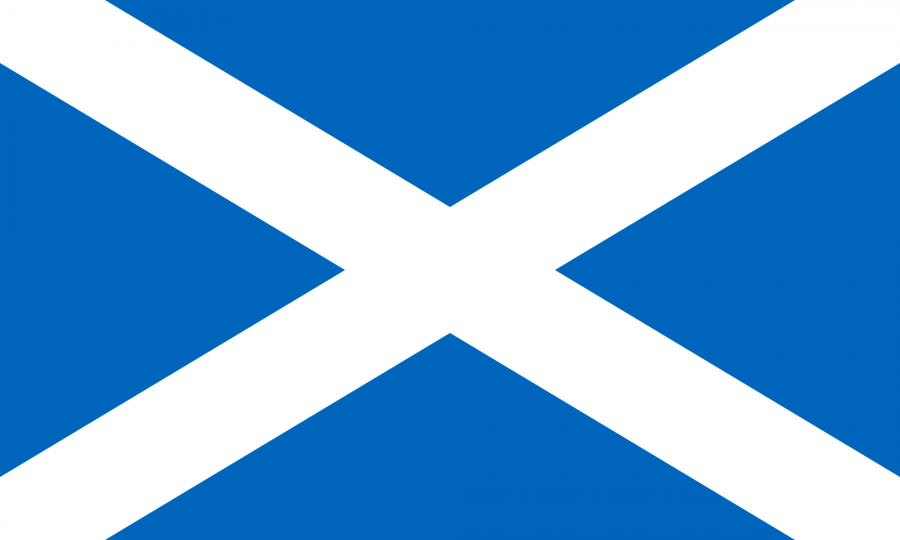[dropcap size=small]I[/dropcap]magine: a partner in a rocky relationship decides, after many years (what perhaps feels like centuries) to abandon her significant other. She packs her things, carefully deliberates over the decision, and declares her intentions. Her jilted partner, terrified at the thought of life without her, sends chocolates and flowers, begs, cries, hires a lackluster wingman, and promises hastily to try better next time, really. “Please, whatever you do, just don’t leave.”
This may seem like the plot of a blockbuster romantic comedy or a poorly scripted soap opera, but, in reality, it is quite the opposite; imagine instead that the partners are Scotland and England, and that the relationship is a 300-year-old political union. Scottish voters head to the polls today (Sept. 18, 2014) in order to make the most important decision of their nation’s history: whether or not they will leave the United Kingdom. The decision to do so would be irreversible, and polls suggest that the margin of victory—it is currently too close to call—will be a mere percentage point, if that much.
For the past year, two rival campaigns have been dueling for votes, eschewing party lines in order to create a unified voice for their side. The independence campaign, “Yes Scotland,” is backed by the Scottish National Party and the Scotland Green Party and has thus far done an admirable job of galvanizing voters. The complete uncertainty of the vote, even as of Wednesday night, is a testament to the campaign’s efficacy. Just one month ago, a ‘No’ vote seemed the only real possibility. It is only in the past two weeks that the polls have begun to suggest that it could go either way.
Both cases have made good points. Scotland deserves to be far more self-determining, and although power was devolved from London and they were given their own Parliament 15 years ago, this concession has clearly proved unsatisfactory.
The anti-independence campaign, dubbed “Better Together,” is backed by the three major parties in Westminster (analogous to Washington D.C. in the U.K.): Labour (left), Conservative (right), and Liberal-Democrats (center-left). The ‘No’ vote began with a 10 percent lead, perhaps lulling the campaign into a false sense of security. Their campaign has failed to excite people in the same way as Yes Scotland. This lack of enthusiasm has reflected itself in the poll results. Better Together’s buffer has now been diminished to a mere 1 percent, causing David Cameron, the British Prime Minister, to knock on Scotland’s door in an attempt to reconcile and sway voters back to the “No” camp. However, as English comedian John Oliver pointed out on Monday, it’s very difficult to treat a nation poorly for 300 years and attempt to reconcile in the space of two weeks; the long history between the two countries has had many ups and downs.
As approximately half of the Scottish population has expressed in pre-referendum day polls, the U.K. has dismissed Scottish input for hundreds of years. Despite political controversy, residents and scholars tend to agree that this proves to be something of a double edged sword for Scotland. Scotland benefits from programs like the comprehensive National Health Service and receives, in total, more funds from Westminster than it pays in taxes. However, Scotland also possesses large North Sea oil reserves, the revenues from which are sent directly to London before they are redistributed throughout the U.K. It is these oil reserves that Scotland is counting on for economic security should the vote be “Yes.” The hitch is that the North Sea oil output is projected to decrease fourfold in the next 25 years, meaning that although Scotland would be economically well-off for a period, it would later encounter an enormous financial downturn from which it would have a very difficult time recovering. This is a serious problem, and one that Scotland does not seem to have taken well into account.
Scotland would also have to scramble in order to find a new currency. The leaders of all three major parties in London have made clear that an independent Scotland would not be permitted to use the pound. Additionally, Scotland’s almost inevitable march to join the European Union would be a lengthy one, and use of the Euro would be impossible for the near future.
Both sides have made good points. Scotland deserves to be far more self-determining, and although power was devolved from London and they were given their own Parliament 15 years ago, this concession has clearly proved unsatisfactory. Scotland is also a left-leaning nation, which stands in contrast to the Conservative government that has been in power for over half of the past century and that currently controls Parliament. Scots do not want David Cameron or his party in power, but because Scots represent a mere 8 percent of the total U.K. population, there is very little that they can do about it.
The fact remains that Scotland stands to save the rest of the U.K. from itself. The Scots are staunch European Unionists and oppose the anti-union, radical-right United Kingdom Independence (UKIP) party: although approximately 30 percent of Britons in total voted for UKIP last May, Scotland gave them barely 10 percent of their ballots, according to BBC News. If so many Scots are persuaded that the EU is the way forward, their 8 percent may make all the difference in the years to come, as UKIP threatens to win the next legislative elections and the U.K. plans to hold a referendum on its EU membership. The stakes are higher than we may imagine: economic cooperation, the currency union, the European Council, and the dysfunctional political union that has nevertheless prevented war in Europe for over 50 years, may all be imperiled. While these very real dangers may be unpersuasive to Scots determined to vote “Yes,” they must also consider the ramifications that their decision will have on the rest of Europe and the rest of the world for the next 50 or 100 years. All Scots should ask themselves: is the world that may result from our decision the one that we truly desire? They may plan on EU membership, but if all goes awry, the organization may cease to exist in its current form by the time they are ready to join.
The economic and political ramifications could very well be disastrous, but Scotland may deem the risk worth their right to make decisions for and by themselves.
Should Scotland decide to embark on independence, it will face a long and extremely uncertain path, one that is more likely to be a downward slope than anything else. It is stronger and more internationally significant as part of the U.K. Westminster will continue to devolve power to Scotland, meaning that the demands of the Yes campaign can be compromised if not resolved, all without sundering the relationship entirely. The Yes campaign may have convinced many that an independent Scotland will be economically, culturally, and politically prosperous: that they will rid Scotland of David Cameron and the Conservative party once and for all, join the European Union, pump millions of barrels of North Sea oil forever, begin using the Euro, and live happily ever after.
However, the world does not work in such a way. The pure euphoria and optimism that Yes Scotland has planted cannot continue to grow in fallow soil. Lofty reasons for independence, such as cultural prosperity, “a fair and caring Scotland for all” (according to Yes Scotland’s website), and unleashing Scotland’s hitherto unremarkable economic potential will seem frivolous should the stark reality of economic crisis fall upon the nation. Both campaigns have run scare stories, but jumping ship because one is afraid of nonexistent National Health Service cuts is very different from staying because there are claims that one might have to use a passport to visit friends and family in the U.K (although both claims are nonsense). Scots must deliberate long and hard about this decision and making a frenzied jump for independence based on false information and adrenaline is one of the worst things that the nation can do. A “No” vote may be reevaluated in 20 or 30 years. A “Yes” vote would be irreversible.
As international and U.K. correspondents themselves have remarked multiple times, not even the most astute political analyst is capable of predicting today’s result. Too many factors will come into play; this is the kind of decision that many voters will contemplate up until the moment they enter the voting booth. Even 16- and 17-year-olds are permitted to vote, which demonstrates the gravity of the situation and the need for Scots to be sure of what they want, not just for now, but for the very far future. The economic and political ramifications of independence could very well be disastrous, but Scots may deem their right to make decisions for and by themselves, for once in 300 years, worth the risk.








